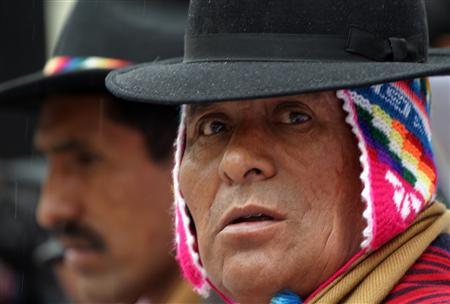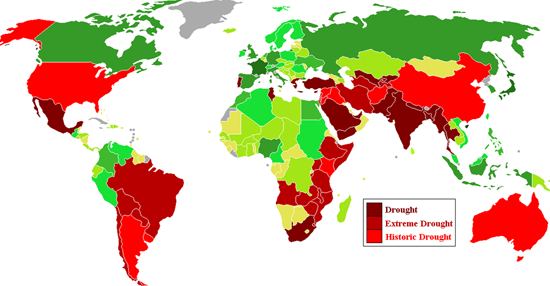
A Bolivian indigenous man participates in the celebrations marking the 228th anniversary of the siege of La Paz March 13, 2009. REUTERS
LA PAZ (Reuters) – Emboldened by a new leftist constitution, Bolivia President Evo Morales on Saturday handed over ownership of farmland seized by the state from wealthy estate holders to poor indigenous people.
Morales handed out around 94,000 acres of lands recently confiscated from five big ranches in Bolivia’s wealthy eastern lowlands, a stronghold of his conservative political opponents. The ranchers have been accused of employing workers in conditions of semi-slavery.
“Private property will always be respected but we want people who are not interested in equality to change their thinking and focus more on country than currency,” said Morales, flanked by military and police personnel.
Among those who lost land was U.S. cattleman Ronald Larsen, who has emerged as a key opponent of the Morales government’s land reforms, which are designed to distribute more of the nation’s riches to poor indigenous peoples.



 Mr Fernandez supported an autonomy referendum earlier in 2008
Mr Fernandez supported an autonomy referendum earlier in 2008